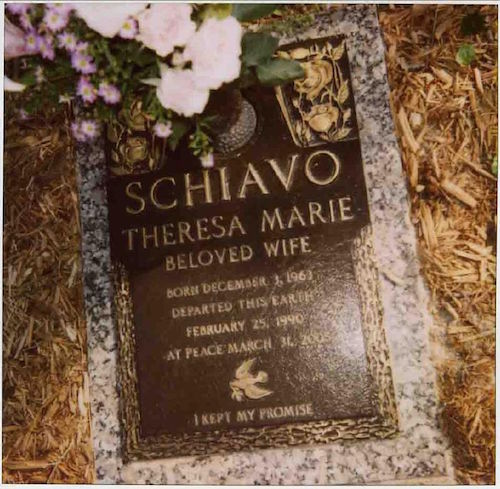 Culture & Ethics
Culture & Ethics
 Medicine
Medicine
Haunted by Her Smile: Terri Schiavo, Ten Years Later

At First Things, I reflect on the powerful societal divisions that our reactions to Terri Schiavo reveal. From "The Great Terri Schiavo Divide":
At the end of this month, Terri Schiavo will be ten years dead. But she is far from forgotten.
Everyone reading these words knows the story, and everyone has an opinion. What began in 1990 as a private tragedy — a vivacious young woman stricken in the prime of life with a severe cognitive disability — became a source of profound cultural division, as likely to spark debate today as when the case first broke into the public’s consciousness.
Who can deny it? As I note, Terri gets (inappropriately) caught up in the abortion debate, the equality/sanctity of life versus "quality of life" ethic, even the sexual revolution:
Debates over the sexual revolution and the meaning of marriage also became entangled in opinions about Terri’s fate. In the media, Michael is often identified simply as Terri’s "husband" who pursued a difficult course because that is what she would have wanted.
But it wasn’t nearly that simple. Prior to petitioning the court to remove Terri’s feeding tube, Michael began cohabiting with another woman with whom he had sired two children. Those who supported Michael often shrugged off his adulterous involvement as an understandable part of the process of "moving on."
In contrast, those who opposed Terri’s dehydration believed that, by starting another family, Michael had effectively abandoned his marriage — meaning that he should have had no part in deciding Terri’s fate.
But I have another, undoubtedly heterodox thought about all of this: I think our collective conscience is bothered by her death.
Polls tend to show public support for the fatal outcome. But I don’t sense any peace about it. Indeed, I think our inner voices, the part of us that never lies, may harbor lingering doubts. Perhaps the reason we still react so viscerally to Terri Schiavo — why she remains an open cultural sore — is that our consciences are haunted by the enduring memory of her smiling face.
That is the real reason she will not go away. And I will not let it go.
Image by GordonWatts at the English language Wikipedia [GFDL or CC-BY-SA-3.0], via Wikimedia Commons.
